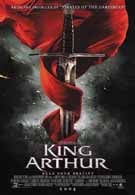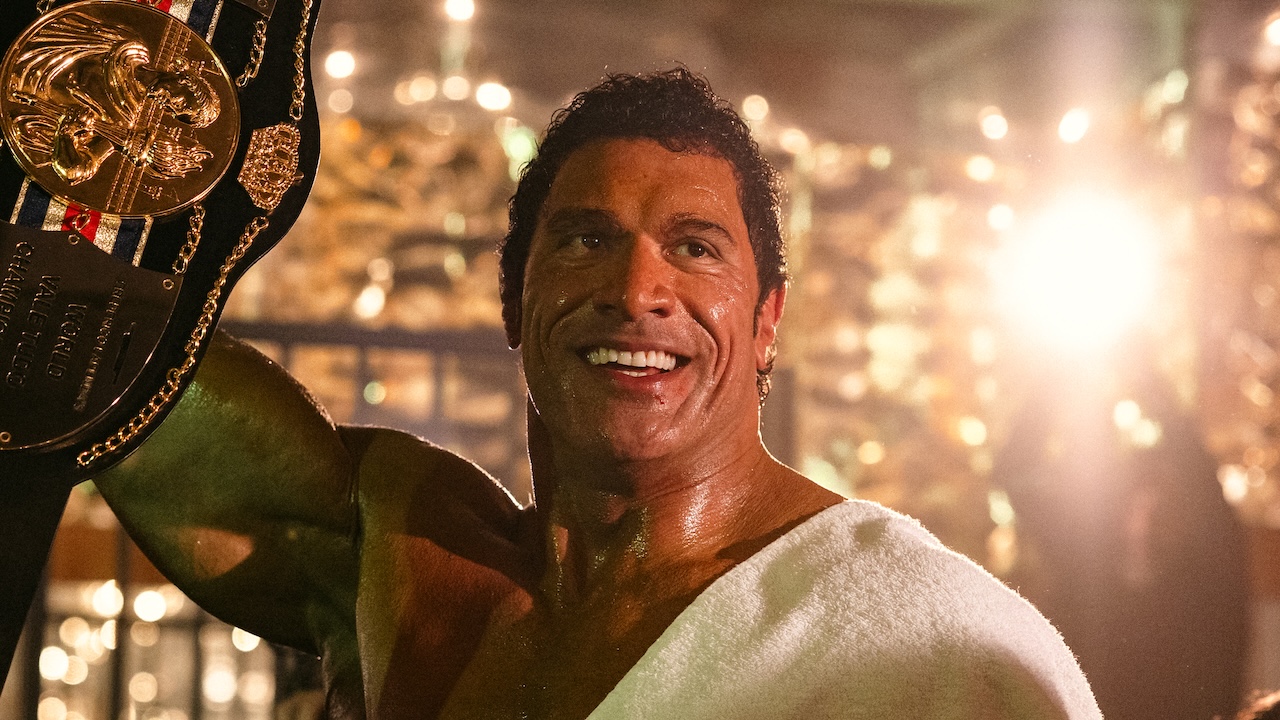In advertising King Arthur, Touchstone Pictures is trading heavily on the idea that the story being told is real. No doubt marketing focus groups have informed them that people like movies better when they’re based on a true story. But if this version of King Arthur actually happened, then Arthur must have somehow obtained a copy of The Seven Samurai since he and his six knights are stealing all of Kurosawa’s ideas. What kind of adapter do you need to make a VCR work in 4th century Europe?
In fact, this Arthur (Clive Owen) isn’t even technically British, nor is he King. Rather, he’s a Roman military commander in charge of keeping the peace in occupied England while leading a band of pagan conscripts forced into Roman cavalry service. The geopolitical forces swirling around him are fantastically complicated and David Franzoni’s half-wit script fails to explain any of them. Instead, there’s a really big wall. On the south side is Arthur, his knights, some interchangeable Roman soldiers, and a bunch of peasants. On the north side are native warriors with a penchant for painting themselves blue, called Woads, who also seem to be on the south side, though nearly everyone swears they are not.
That’s ok though, since Arthur seems pretty familiar with the north side of the wall, where he also claims never to have gone. The north side you see is the enemy’s stronghold which, in true Lethal Weapon style, means that on the eve of their retirement, Arthur and his knights must of course go there to extract a Roman dignitary who has inexplicably built his house in the midst of Rome’s greatest enemies. Why a fat, defenseless, court toady has chosen to build a summer home in a place where elite soldiers are afraid to go we are never told.
As if freedom fighting Woads weren’t enough trouble, the Saxon’s have landed on the country’s north shores; the Saxon’s in this case being a weird imitation of Peter Jackson’s Uruk-Hai from The Lord of the Rings. The first Saxon on screen is a particularly dirty fellow rolling around in the mud as he forces himself on a helpless Scottish prisoner. When not raping women, the Saxon’s are killing each other. Perhaps they’d be less angry if one or two took a bath. I guess bad guys are at their baddest when refusing to be clean.
Initially, King Arthur is marginally bearable. Arthur and his knights trudge around playing Magnificent Seven, protecting the innocent against political red tape and militarily impossible odds while stopping to woo pretty women with their stock personalities. One knight is a brutish oaf, one has a hawk, one is named Galahad (Hugh Dancy) and has no distinguishing feature beyond the fact that some Round Table fans might recognize his name. Then there’s Lancelot (Ioan Gruffudd), who has a way with the ladies of other men and we’re told (though never shown) that he’s Arthur’s right hand man. Inevitably one of the Knights has to tell Arthur how he’d like to be buried, signifying that of course before the movie is over that this character will be dead. It’s that sort of obvious storytelling that from the outset hampers King Arthur and in the final act helps drag it to the bottom of the summer movie basement.
King Arthur is defined by outright laziness on the part of everyone involved. The story is lifted from Kurosawa, the movie is poorly edited, the particulars of the battles disjointedly thought out. The Woads always seem to be accompanied by a forest, even when there’s not one on the battlefield. The Saxons can’t be bothered to do anything better than clump together and shout. Rubber swords are in evidence, even in scenes where they’re just being used to salute. There’s a poignant moment of silence in which a knight in the background is obviously screaming at the top of his lungs, lazy editing means that rather than pick a different shot they simply remove his voice. Bad enough that we’re expected to believe seven knights have been keeping the peace unaided for fifteen years, could someone at least get the technical stuff right? I half expected to see an errant boom mike.
Antoine Fuqua’s lethargic directing is kind of a shame. His actors give good performances and perhaps with a little effort from him they could have in some small way overcome the dreadfully bland and derivative material they’re working with. The Magnificent Seven is a Kurosawa knockoff, but an entertaining and memorable one. In someone else’s hands, maybe turning King Arthur into a medieval version of that could have at least been a fun idea. For Fuqua, it’s an exercise in dopey pretension. With every step King Arthur takes, it only unravels further until the final moments become so confounding there’s nothing to do but hope Fuqua gives up and turns his camera off.
Your Daily Blend of Entertainment News

